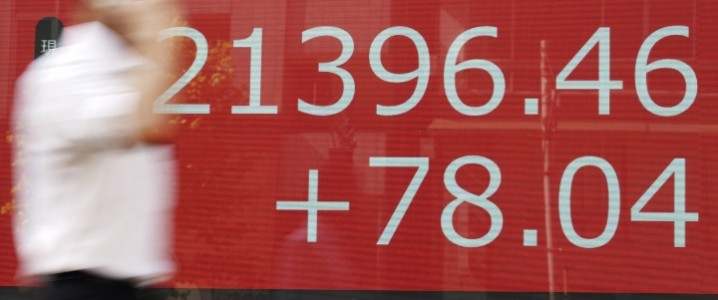Oil Price Plunge Continues Amid OPEC+ Deadlock

Oil prices continued falling early on Wednesday, following the sharp losses incurred the previous day after the market started to assess what the OPEC+ deadlock would mean for immediate oil supply, supply-demand balances, and the future of the alliance.
As of 12:10 a.m. EDT, WTI Crude prices were down 2.45 percent at $71.57 and Brent Crude was trading down 2.16 percent at $72.92.
Prices plunged on Tuesday, dragged down by uncertainty about global oil supply and a strengthening U.S. dollar in afternoon trade.
“The risk of a no deal raising noncompliance, White House urging a compromise, a rapid spreading virus variant, and a very overbought market all helped trigger the correction which was then fed some additional fuel from a stronger dollar,” Saxo Bank said in a morning note on Wednesday.
“While the longer-term outlook looks bullish, short-term uncertainties may lead to increased volatility, not least considering the time of year where summer vacations swing into full gear, thereby removing liquidity from absent traders,” the bank’s strategy team said.
On Wednesday, oil prices reversed earlier gains and traded lower in morning trade in the U.S. as the U.S. dollar strengthened again. A stronger U.S. currency makes crude buying more expensive for holders of other currencies.
The oil market continues to assess the repercussions of the ongoing OPEC+ impasse on supply at a time when summer demand is rising. The Biden Administration also has also called on OPEC to settle its internal differences and start bringing more oil to markets and relief to crude oil and gasoline prices.
Today, traders will also expect the weekly industry estimate of U.S. crude oil inventories by the American Petroleum Institute (API). Analysts forecast a 3.9 million barrel draw in commercial crude oil inventories for the week ended July 2, according to Reuters.
Meanwhile, “There is still likely to be plenty of noise around what OPEC+ may do in the coming weeks, and so that means volatility is likely to remain,” ING strategists Warren Patterson and Wenyu Yao said on Wednesday.




